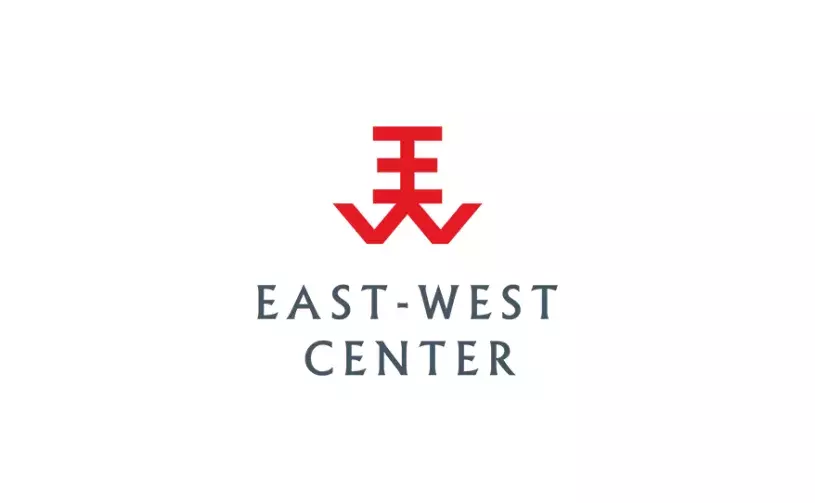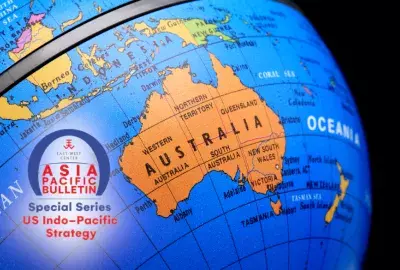Error message

Judy A. Benn, Former Executive Director American Chamber of Commerce in Thailand, explains that “for Thailand to take full advantage of post-pandemic opportunities and reignite its economy to make-up for the last 18 months, the nation will need to capitalize on its centralized geographic location and position as one of Southeast Asia’s strongest manufacturing bases.”
The United States and Thailand have always recognized the strong economic ties between the two countries that have existed for two hundred years and together they continue to make their commercial relationship a top priority. In 2002, the U.S-Thailand Trade and Investment Framework Agreement (TIFA) was signed and provided a strategic framework and principles for dialogue and cooperation on trade and investment issues. Key issues addressed in TIFA talks include General System of Preferences reviews, agriculture, customs, labor, and intellectual property protection and enforcement.
Shortly after coming into force, the TIFA was suspended in 2003 pending a potential US-Thai Free Trade Agreement. Ultimately the FTA did not materialize. The TIFA remains the primary vehicle for resolving trade and investment issues. Neither the United States nor Thailand are parties to the Comprehensive and Progressive Agreement for Trans-Pacific Partnership (CPTPP).
Both countries (Thailand due to the 2014 coup d’état and the United States due to the Trump administration’s ‘America First’ program) have experienced destabilizing trade policies over the last several years which derailed significant attention and progress on TIFA. This delay has, sadly, resulted in both Thailand and the United States losing some of the economic competitive synergies they possess. The last TIFA talks were held in 2019 and a number of issues, including intellectual property rights (IPR) and customs were still priority items. Both of these items weigh heavily on Thailand’s competitiveness for US companies.
For Thailand to take full advantage of post-pandemic opportunities and reignite its economy to make-up for the last 18 months, the nation will need to capitalize on its centralized geographic location and position as one of Southeast Asia’s strongest manufacturing bases. Additionally, Thailand’s enviable universal healthcare system and its aim to become Asia’s medical hub provides a strong foundation for strengthening existing medical supply chains and expanding the medical research and development already underway in the country. Talks on the TIFA should be prioritized, and continued pressure levied on both sides to join the CPTPP.
Regardless of the TIFA and CPTPP arrangements, attention should urgently be focused on the new way business will be conducted in the future, both through the advancement of digital technology and supply chain, as these offer significant opportunities for Thai and US cooperation. Recommendations include:
1. Accelerate Adoption of Digital Technology. The way companies operate will drastically change. The pandemic has undoubtedly accelerated this shift. It is imperative to strengthen policies that accelerate the digitization of supply chains, the transition to online content and service delivery, and the broader expansion of the “sharing economy”. This is a chance to create a viable infrastructure on which to build the “Internet of Things,” and enable new technologies such as telemedicine and robotics.
Policies and regulations which comply with international standards for ensuring end-to-end security and integrity of data transfers are fundamental to these goals. A ‘trusted Internet’ is the cornerstone for a secure digital ecosystem in support of Thailand’s vibrant economic potential. Creating and maintaining that trust must be a shared and active responsibility of both the public and private sectors.
Thailand’s Digital Government Agency (DGA) is also well-positioned to design and implement a whole-of-government approach to ‘being digital’. A review to eliminate and reduce outdated laws and regulations, started under the nation’s regulatory guillotine project in 2017, should be incorporated into the DGA. Outdated laws limit access to quality government services and obstruct and delay business processes.
Initiatives to increase e-payment literacy, combat cybercrime, and financial fraud will develop Thailand’s financial infrastructure to be interoperable. With the increase in transnational crime and Thailand’s history for lax law enforcement, opportunities exist to strengthen the financial framework the country needs to operate in a digital environment.
2. Focus on Supply Chain Advantages. The disruption to supply chains has firms re-thinking their existing logistics to develop more resilient models. Production sites in China exporting to the United States are increasingly shifting to third countries due to China’s rising labor costs, tighter environmental regulations, and the recent trade confrontation with the United States. US-China commercial relationships are also being challenged by recent developments in the digital space with China’s heavy-handed approach to data localization, cross-border data restrictions, and investment prohibitions in the cloud. These issues have impaired the ability of US companies to compete in China and motivated them to look elsewhere. The new investment package that Thailand launched just prior to Covid-19, which covers investment acceleration incentives for advanced technologies and innovative production automation, dovetails neatly with this need.
There is also a need to reform regulatory policies to support supply chains within Thailand’s borders. To realize its potential as a global production base, Thailand must ensure that cargo can efficiently travel across jurisdictions. Thus, regulations aimed at harmonizing customs and trucking networks will enable delivery of goods with fewer obstacles and delays. Reforming Royal Thai Customs laws to meet international standards will also help streamline production logistics within the country.
3. Review Stringent Regulations. With the pandemic, regulators are loosening or relaxing some requirements to accelerate regulatory clearance or procurement of certain products and equipment needed in the fight against Covid-19. Leniency at this time does not, however, imply less stringent enforcement on the part of regulators. Safety and consumer protection remain of paramount importance. As utilization of digital platforms and solutions increases and they progressively replace traditional modes of marketing and promotion, operators will need to take percolating legal issues into consideration and the enforcement of regulations in this area will need to be even more vigilant.
A recent partnership between a Thai company and a US company sought to merge digital technology with supply chain needs. Ultimately, the business venture produced the world’s first fully integrated procure-to-pay blockchain solution that streamlined purchasing processes, payments, and financing acquisitions. This solution goes beyond improving supply chain efficiency. It also integrates suppliers into Thailand’s e-tax invoice initiative for more frictionless processing and combats fraud by providing increased security and traceability. This example highlights the innovation occurring in the development of Thailand’s digital infrastructure and the potential for US-Thai collaboration in the sector.
In mid-September China made a formal application to join CPTPP and this has renewed Thailand’s interest in this regional trade pact. With China joining the CPTPP, the bloc will include more than 25% of the world’s population, The United States cannot afford to let China dictate the trade rules for the region and lessen Thailand’s interest in continuing its strategic dialogue with the United States on these important issues.
Judy A. Benn, Former Executive Director American Chamber of Commerce in Thailand, explains that “for Thailand to take full advantage of post-pandemic opportunities and reignite its economy to make-up for the last 18 months, the nation will need to capitalize on its centralized geographic location and position as one of Southeast Asia’s strongest manufacturing bases.”
The United States and Thailand have always recognized the strong economic ties between the two countries that have existed for two hundred years and together they continue to make their commercial relationship a top priority. In 2002, the U.S-Thailand Trade and Investment Framework Agreement (TIFA) was signed and provided a strategic framework and principles for dialogue and cooperation on trade and investment issues. Key issues addressed in TIFA talks include General System of Preferences reviews, agriculture, customs, labor, and intellectual property protection and enforcement.
Shortly after coming into force, the TIFA was suspended in 2003 pending a potential US-Thai Free Trade Agreement. Ultimately the FTA did not materialize. The TIFA remains the primary vehicle for resolving trade and investment issues. Neither the United States nor Thailand are parties to the Comprehensive and Progressive Agreement for Trans-Pacific Partnership (CPTPP).
Both countries (Thailand due to the 2014 coup d’état and the United States due to the Trump administration’s ‘America First’ program) have experienced destabilizing trade policies over the last several years which derailed significant attention and progress on TIFA. This delay has, sadly, resulted in both Thailand and the United States losing some of the economic competitive synergies they possess. The last TIFA talks were held in 2019 and a number of issues, including intellectual property rights (IPR) and customs were still priority items. Both of these items weigh heavily on Thailand’s competitiveness for US companies.
For Thailand to take full advantage of post-pandemic opportunities and reignite its economy to make-up for the last 18 months, the nation will need to capitalize on its centralized geographic location and position as one of Southeast Asia’s strongest manufacturing bases. Additionally, Thailand’s enviable universal healthcare system and its aim to become Asia’s medical hub provides a strong foundation for strengthening existing medical supply chains and expanding the medical research and development already underway in the country. Talks on the TIFA should be prioritized, and continued pressure levied on both sides to join the CPTPP.
Regardless of the TIFA and CPTPP arrangements, attention should urgently be focused on the new way business will be conducted in the future, both through the advancement of digital technology and supply chain, as these offer significant opportunities for Thai and US cooperation. Recommendations include:
1. Accelerate Adoption of Digital Technology. The way companies operate will drastically change. The pandemic has undoubtedly accelerated this shift. It is imperative to strengthen policies that accelerate the digitization of supply chains, the transition to online content and service delivery, and the broader expansion of the “sharing economy”. This is a chance to create a viable infrastructure on which to build the “Internet of Things,” and enable new technologies such as telemedicine and robotics.
Policies and regulations which comply with international standards for ensuring end-to-end security and integrity of data transfers are fundamental to these goals. A ‘trusted Internet’ is the cornerstone for a secure digital ecosystem in support of Thailand’s vibrant economic potential. Creating and maintaining that trust must be a shared and active responsibility of both the public and private sectors.
Thailand’s Digital Government Agency (DGA) is also well-positioned to design and implement a whole-of-government approach to ‘being digital’. A review to eliminate and reduce outdated laws and regulations, started under the nation’s regulatory guillotine project in 2017, should be incorporated into the DGA. Outdated laws limit access to quality government services and obstruct and delay business processes.
Initiatives to increase e-payment literacy, combat cybercrime, and financial fraud will develop Thailand’s financial infrastructure to be interoperable. With the increase in transnational crime and Thailand’s history for lax law enforcement, opportunities exist to strengthen the financial framework the country needs to operate in a digital environment.
2. Focus on Supply Chain Advantages. The disruption to supply chains has firms re-thinking their existing logistics to develop more resilient models. Production sites in China exporting to the United States are increasingly shifting to third countries due to China’s rising labor costs, tighter environmental regulations, and the recent trade confrontation with the United States. US-China commercial relationships are also being challenged by recent developments in the digital space with China’s heavy-handed approach to data localization, cross-border data restrictions, and investment prohibitions in the cloud. These issues have impaired the ability of US companies to compete in China and motivated them to look elsewhere. The new investment package that Thailand launched just prior to Covid-19, which covers investment acceleration incentives for advanced technologies and innovative production automation, dovetails neatly with this need.
There is also a need to reform regulatory policies to support supply chains within Thailand’s borders. To realize its potential as a global production base, Thailand must ensure that cargo can efficiently travel across jurisdictions. Thus, regulations aimed at harmonizing customs and trucking networks will enable delivery of goods with fewer obstacles and delays. Reforming Royal Thai Customs laws to meet international standards will also help streamline production logistics within the country.
3. Review Stringent Regulations. With the pandemic, regulators are loosening or relaxing some requirements to accelerate regulatory clearance or procurement of certain products and equipment needed in the fight against Covid-19. Leniency at this time does not, however, imply less stringent enforcement on the part of regulators. Safety and consumer protection remain of paramount importance. As utilization of digital platforms and solutions increases and they progressively replace traditional modes of marketing and promotion, operators will need to take percolating legal issues into consideration and the enforcement of regulations in this area will need to be even more vigilant.
A recent partnership between a Thai company and a US company sought to merge digital technology with supply chain needs. Ultimately, the business venture produced the world’s first fully integrated procure-to-pay blockchain solution that streamlined purchasing processes, payments, and financing acquisitions. This solution goes beyond improving supply chain efficiency. It also integrates suppliers into Thailand’s e-tax invoice initiative for more frictionless processing and combats fraud by providing increased security and traceability. This example highlights the innovation occurring in the development of Thailand’s digital infrastructure and the potential for US-Thai collaboration in the sector.
In mid-September China made a formal application to join CPTPP and this has renewed Thailand’s interest in this regional trade pact. With China joining the CPTPP, the bloc will include more than 25% of the world’s population, The United States cannot afford to let China dictate the trade rules for the region and lessen Thailand’s interest in continuing its strategic dialogue with the United States on these important issues.







